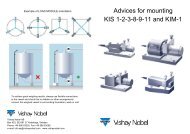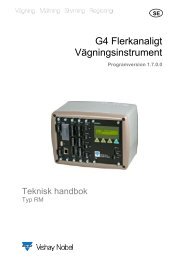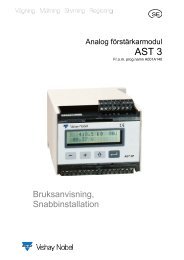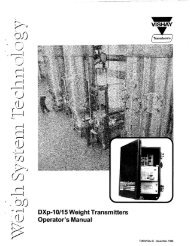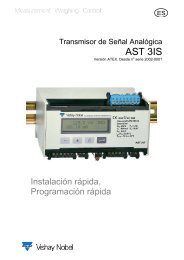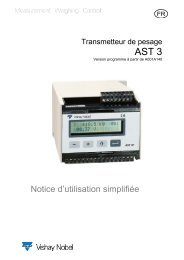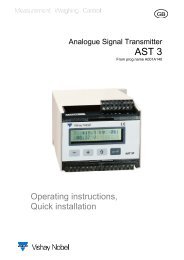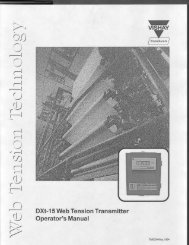G4 Multi Channel Weighing Instrument. PM/DT/HE Technical Manual
G4 Multi Channel Weighing Instrument. PM/DT/HE Technical Manual
G4 Multi Channel Weighing Instrument. PM/DT/HE Technical Manual
Create successful ePaper yourself
Turn your PDF publications into a flip-book with our unique Google optimized e-Paper software.
<strong>G4</strong> <strong>Multi</strong> <strong>Channel</strong> <strong>Weighing</strong> <strong>Instrument</strong>Modbus protocolFor communication with a master computer (PLC) the Modbus protocol is used inthe instrument. The Modbus protocol is a standard protocol, used for master/slavecommunication in the industry.Information is transmitted in blocks of data to minimise polling and response timedelays. For example the error register, status register and weight register could be readwith one command to the instrument.When a command that cannot be performed is sent, the instrument responds withan exception code. For a better explanation of the error, a special command errorregister could be read.Depending on the type of the communicating equipment (the master), the commands inthe application programme (PLC programme, or pc programme) may be different fromtype to type. However, if the master is not a Modicon PLC system, then the Modbusimplementation in the master must have some cross-reference function to transfer theModbus register and I/O bit numbering to the masters own register andI/O bit numbering. All registers and coils described in this manual use the standardModbus (Modicon) register and I/O numbering.See the master's own Modbus driver documentation for how the commands should beactivated in the master's application programme.Most manufacturers of PLC systems and HMI and SCADA software can provideModbus drivers. Various Modbus drivers for development of Windows programs arealso available on the market.More information about Modbus protocol can be found at ‘www.modbus-ida.com’ andmany other places.6-3



